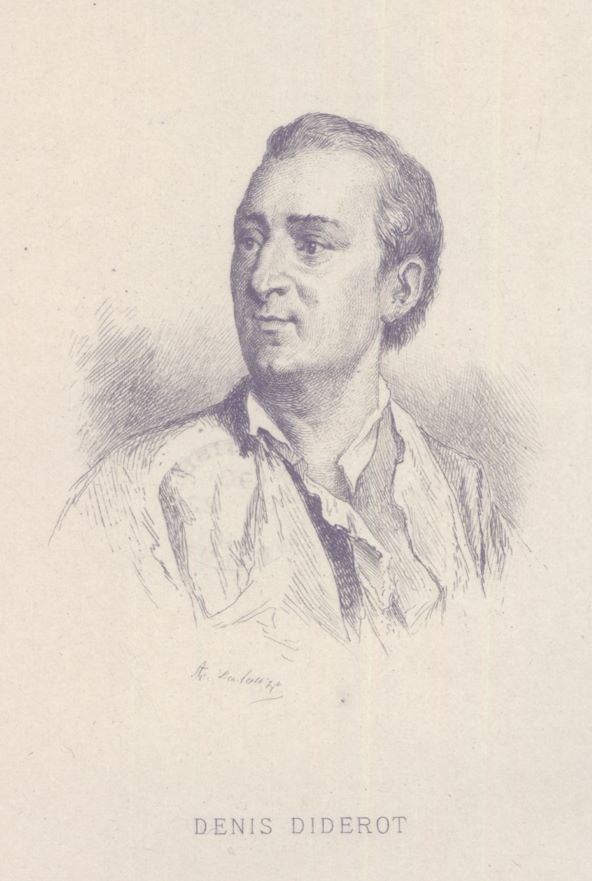Liberty Matters
Let’s Not Surrender “Radical”

Thank you to Hank, Kent, and Dan for their excellent pieces that have made this conversation so stimulating and enjoyable. I think we can all agree that the range of political viewpoints in the Encyclopédie, with its nearly 73,000 articles, is challenging to assess according to any one criterion. This is particularly true of "radical," which is so freighted with the baggage of revolution and 19th-century political movements. I'll second Dan's claim that it is "anachronistic and teleological to speak of 'radical politics' in 18th-century thought." However, I do think "radical" retains analytic purchase as a qualifying term along the lines of, in one of Hank's examples, "radical Reformation" or, in the context of this forum, something like "radical reform." Jonathan Israel's radically misguided arguments may have spoiled the term "radical Enlightenment" despite Margaret Jacob's more careful and prior elucidation, but I'm not convinced that we dix-huitièmistes should surrender the adjective altogether.
To turn to Hank's response to my own contribution to the conversation, I certainly agree with his warning against conflating intention and result. I don't think either of us wants to go down that particular rabbit hole, but the specific act of intention he refers to – the basic epistemological framework of the Encyclopédie elucidated in striking visual form in the "Map of the System of Human Knowledge" – constitutes a singularly accessible argument that is, at the same time, one of the text's most subversive arguments. After the first volumes, it took protection from Malesherbes to limit the official response to the Encyclopédie to a condemnation for having advocated "several maxims tending to destroy royal authority, establish the spirit of independence and revolt," and promote "the corruption of moeurs and irreligion."[89] Even if the project lost something of its initial radical edge as Boucher and Jaucourt "soldiered on," that initial epistemological cri de guerre remained central to the project's overall stance. Hank also questions "just how tight the connection is between epistemology and politics." This is a fair point, but the epistemology in question here is more the attack on the Church and theology articulated within the Encyclopédie's epistemological apparatus than the Baconian principles themselves. Hank also questions my reading of the status of privilege in the Encyclopédie. Turgot's "Foundations" was certainly not the only or even then last word on the subject, but would organizing "provincial assemblies along property rather than status lines" or "drawing on the resources of a growing commercial economy" not have amounted to fairly dramatic reforms in the context of the Old Regime?
The question of privilege leads to that of "monarchic liberalism." If the majority of articles espouse some version of such a political stance, I would be quick to add – as Hank does at the very end of his second piece – that "monarchic liberals could be 'radical.'" I'm not sure if this is "elegant jousting" (or cake-having) on his part, but I will redirect Hank's point to our discussion of the Encyclopédie itself. One powerful strand of monarchic liberalism – the economic liberalism Dan outlines in his essay – advocated, to reprise two of Dan's examples, freeing the grain trade and ending slavery. Such reforms would have remade the Old Regime political, social, and economic order in a manner that was in no way "conservative" and might merit the term "radical." The monarchy's decision to establish the freedom of the grain trade in 1763-64 (repealed in December 1770) has been described by its foremost historian as a "radical new departure in liberalization" and "the most radical and significant departure from the mold of the administrative monarchy made in the old regime."[90] And one can hardly think of a more "radical" stance than abolishing slavery. Perhaps I'm quibbling over labels at this point, but in the context of the publication of the Encyclopédie these were powerful critiques of the existing order and, it seems to me, "radical."
Endnotes
[89.] Quoted in Darnton, The Business of Enlightenment, 10.
[90.] Steven L. Kaplan, Bread, Politics and Political Economy in the Reign of Louis XV (The Hague : Martinus Nijhoff, 1976), 1:144 and 2:446.
Copyright and Fair Use Statement
“Liberty Matters” is the copyright of Liberty Fund, Inc. This material is put on line to further the educational goals of Liberty Fund, Inc. These essays and responses may be quoted and otherwise used under “fair use” provisions for educational and academic purposes. To reprint these essays in course booklets requires the prior permission of Liberty Fund, Inc. Please contact oll@libertyfund.org if you have any questions.